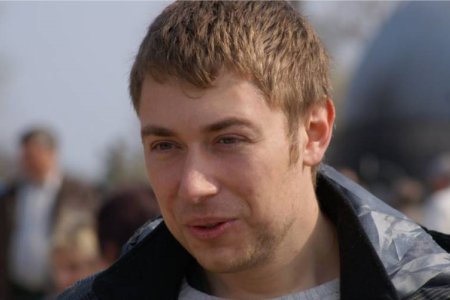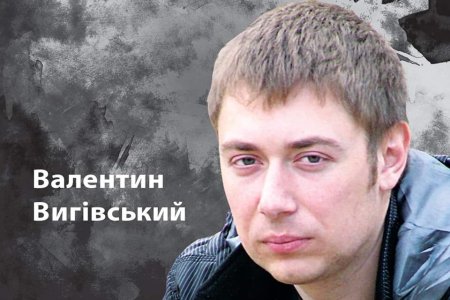
Russia is to build another SIZO, or pre-trial detention centre, in occupied Crimea, the third it will have opened since it launched its full-scale invasion of Ukraine in 2022. The aggressor state has also, reportedly, announced substantial amounts of financing for ‘reinstating’ temporary holding units and other law enforcement-linked structures on occupied Ukrainian territory. Having razed several Donbas cities to the ground and caused massive destruction to others, Russia is prioritizing control over the population and not ensuring that their homes, schools and hospitals are rebuilt.
Russia’s crushing of any independent media and its effective information blockade on occupied parts of Donetsk, Luhansk, Kherson and Zaporizhzhia oblasts make it very difficult to monitor spending on ‘law enforcement’. It is clear, however, from the constant reports of massive sentences passed for so-called ‘spying’, ‘treason’ or for comments made on social media that Russia is far more concerned with hunting out pro-Ukrainian sentiments, than with fighting crime. Ukrainians in Luhansk oblast have been sentenced to huge terms of imprisonment, in some cases for having made small donations to help Ukraine’s Armed Forces when they were still underage. It is often clear that the people whose ‘sentences’ have been reported in 2025 were, in fact, abducted as much as three years ago and held totally incommunicado. Russia has just churned out the first, monstrous, sentences against a number of Melitopol journalists and Ukrainian Telegram channel administrators, with the preposterous ‘terrorism’ charges almost certainly based solely on ‘confessions’ tortured out of the young men and women.
One of the reasons why Russia opened two new SIZOs in occupied Crimea in the autumn of 2022 was, doubtless, to hold very many civilian hostages, abducted from occupied parts of Kherson and Zaporizhzhia oblasts. SIZO No. 2, in particular, is essentially a remand prison for political prisoners and civilian hostages, which has, from the outset, been under FSB control. In September 2023, the Crimean Human Rights Group reported that there were over 120 prisoners in SIZO No. 2 with none of them prisoners accused of ordinary offences. In very many cases, civilians have been held there for months or years, without any official status and without any access to independent lawyers. It remains unclear, for example, where Russia is holding Oleksandr Babych, Mayor of Hola Prystan, and 77-year-old Mariano Garcia Calatayud [Mario], a Spanish national seized for his pro-Ukrainian views from Kherson while it was under Russian occupation. Both men were abducted in March 2022, and are known to have been imprisoned for some time in SIZO No. 2.
The Crimean Human Rights Group [CHRG] learned in the middle of 2023 that the Russians had opened an informal ‘SIZO’ in Chonhar (occupied Kherson oblast) and were transferring some of the political prisoners who had been held in SIZO No. 2.
It is telling that the Russian government resolution regarding the building of new SIZOs states that all such remand prisons in occupied Crimea are full. In 2024, Russian leader Vladimir Putin signed into force a law making it possible, not only for convicted prisoners to be released, if they agreed to fight against Ukraine, but also those held, awaiting trial, in a SIZO. The scope for abuse is even greater in the latter case since men who do not want to go and fight can easily be pressured through the threat of even worse charges and a huge sentence (see: Agree to kill Ukrainians and Russia will free all but political prisoners ).
From 1 January 2026, the FSB in Russia and on occupied territory will be able to have their own SIZO. CHRG notes that this was the case until 1996 when Russia’s joining of the Council of Europe led to investigative bodies, including the FSB, losing their control over prisons and detention centres. Russia was effectively expelled from the Council of Europea because of its full-scale invasion of Ukraine and it is presently in the process of removing all the safeguards against abuse that it was forced to provide in exchange for Council of Europe membership.
The reinstatement of such FSB power is likely to further escalate its already frightening impunity for torture and ill-treatment of political prisoners, prisoners of war and civilian hostages. The new SIZO will be for those accused of so-called ‘crimes against the security of the state’, with that formulation covering all the charges commonly laid against Ukrainians for supporting their own country and objecting to the Russian invasion and occupation (‘spying’; ‘treason’, ‘terrorism’, ‘extremism’ or others.).
Russia has already brought a shocking level of lawlessness to occupied territory (which, in 2025, prompted Freedom House to give a damning rating, worse even than North Korea). The new powers given to the FSB may not radically change the situation on occupied territory given the fact that the FSB already control SIZO No. 2 in occupied Simferopol and frequently abduct Crimean men and women, holding them incommunicado and applying torture, for long periods of time before any charge is laid.
See:
Russian FSB given chilling new weapon of repression against Ukrainian political prisoners



